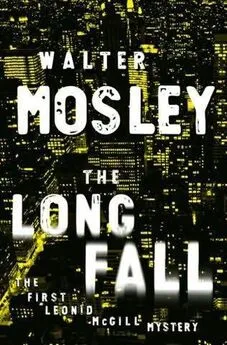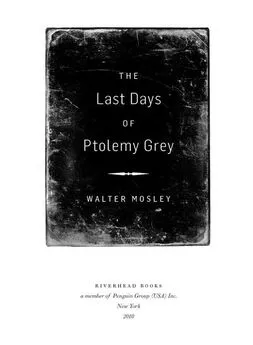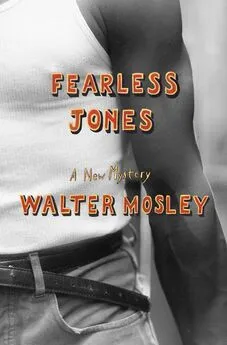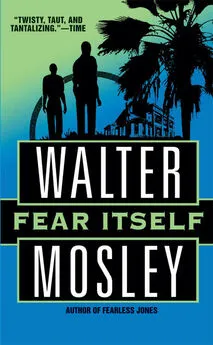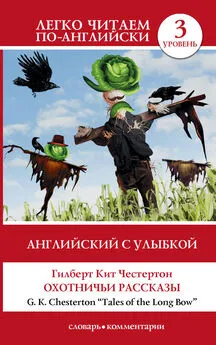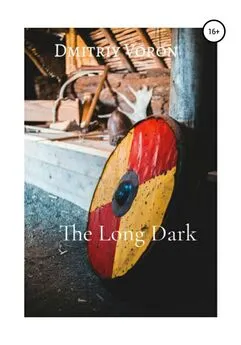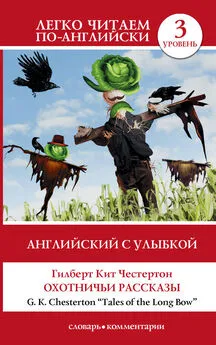Walter Mosley - The Long Fall
- Название:The Long Fall
- Автор:
- Жанр:
- Издательство:неизвестно
- Год:неизвестен
- ISBN:нет данных
- Рейтинг:
- Избранное:Добавить в избранное
-
Отзывы:
-
Ваша оценка:
Walter Mosley - The Long Fall краткое содержание
The Long Fall - читать онлайн бесплатно полную версию (весь текст целиком)
Интервал:
Закладка:
“He’s still alive?”
“Who is he?”
“Never met him before. Never heard of him. I doubt that he’s even human if he survived that flying chair.”
“If he dies it’s manslaughter.”
“Bullshit. That man was trying to kill me. You saw the pictures.”
The cop sat back and did that lacing-his-fingers thing. I’ve never understood what he intends to communicate with that gesture.
“We got one, maybe two men bludgeoned and strangled, and a third who almost fell in line,” he said.
“What men?” I asked.
“Your boy fits the description of the guy who went to see Roger Brown. If you take off the hat and fake whiskers he looks an awful lot like the guy who paid Frank Tork’s bail. That’s what I call suspicious.”
“Yeah,” I said. “Suspicious about your boy Sanderson. I’m just a victim here.”
“That’s one way to look at it.”
“What’s that supposed to mean?”
“Maybe you were in business with Sanderson,” he suggested. “Maybe he decided to take you down and keep the profits for himself.”
“What business? What profits? I was walking out of my door and he attacked me. He didn’t say a word, and my bankbook’s got cobwebs all over it. I was not in business with him, and I never met him.”
Kitteridge was watching my eyes. He did that often. He believed, I think, that he could tell when a man was lying by looking into his eyes. I believed that he could also.
After a moment he pulled his fingers apart and made an open-palmed plaintive gesture.
“Help me out with this, LT,” he said. “We got some white maniac from Albany killing African-Americans on the street. It has the stink of a hate crime.”
“I never even understood the idea of a hate crime,” I said, wasting time, trying to digest the fact that my would-be killer was from Albany. Was he the one who hired Fell? No. Fell didn’t recognize him when he came in for the kill. “I mean, if you kill somebody with evil intent, it’s murder and you should pay for it. That’s all, right?”
“I can sit here all night,” the cop replied.
I leaned forward and three neat little droplets splashed on the tabletop.
“I’m beat, man,” I said. “I been thumped on, handcuffed, dragged down here, and made to wait for hours while you shuffled papers and drank bad coffee. Let me go home and get cleaned up. Let me get some sleep and maybe I’ll come up with somethin’ for ya.”
“I could arrest you.”
“For self-defense?”
“This isn’t going away,” CË gont arson said. “This is murder. If Sanderson pulls through and incriminates you, all bets are off.”
“I don’t know anything.”
TWILL WAS WAITING near the front desk of the Chelsea station. He wore black trousers and a pin-striped blue-and-white dress shirt that was wanting a pair of cuff links. He was sitting there on a wooden bench next to a young blonde in gold hot pants and a blue halter. The young woman was smiling brightly, chattering away at my son. He nodded sagely now and again and spoke in a low voice.
When he saw me Twill stood up, but we didn’t embrace. Twill is too cool for kneejerk expressions of fondness; I guess I am, too.
“Hey, boy,” I said. “What you doin’ here? It’s nearly two in the morning.”
“Mr. Lewis called,” he said. “He told me that you’d been arrested and so I called up to find out what precinct Detective Kitteridge was working out of.”
If anyone was an example of having too much on the ball it was my son. He would track down Satan and then try to brace him for a bad debt.
“This is Lonnie,” Twill said. “She’s waiting for her boyfriend, Juman. They got him in here on a seventy-two-hour thing. I gave her Mr. Lewis’s number. I hope that’s okay.”
Lonnie had the lovely, and somewhat awkward, physical contradiction of skinny legs and big breasts. She stood up and shook my hand like her mother had taught her when she was five.
“Pleased to meet you, Mr. McGill. Your son is great.”
“Tell Breland to call me,” I said. “If it’s just a simple thing, I’ll cover the charge.”
“Thank you, sir,” she said. “He’s really not a bad guy at all.”
Before we left, Lonnie kissed my son on the cheek and whispered something to him.
“WHAT DID LONNIE say?” I asked Twill. We were walking down the ramp that led to the garage where he had parked my classic car.
“She wants me to call her. Says that Juman is on the way out and she’d like to buy me a coffee or something.”
I gave him a doubting stare.
“Don’t worry, Pop. She was just thankful to have somebody help her out in there.”
He didn’t say whether he was going to call her or not.
ON THE WAY home Twill asked me about the interrogation. I told him what happened, then tried to get deeper into him.
“So you didn’t really say if you had a steady girl,” I ventured.
“Don’t worry, Dad. Lonnie’s not my type.”
“I’m not worried about her. I just wanted to know if you had something going on. You know, a steady, like.”
He laughed. I think he might have been a little embarrassed.
“What’s funny?” I asked him.
“Here some man you never even met tries to beat you to death and you’re asking me about if I have a girlfriend or not?”
“Near-death experience makes a man want to pay attention to the little things. Is it so hard to answer a simple question?”
“I’m not gay, if that’s what you’re asking.”
“You know, son, you’re better than I was in that interrogation room.”
“What do you mean?”
“Something’s going on with you, Twill. I want you to trust me.”
“I trust you fine.”
“Then talk to me.”
“I’m okay, Dad. You don’t have to worry about me.”
Most parents of teenagers could identify with that banter. There I was, the dedicated fisherman, and he was like a lively trout slipping between my fingers in an icy-cold stream.
The difference between Twill and other young men was that he was planning a hit in New York City with no more trepidation than a teenage girl fixing her lipstick between kisses.
“Tell me somethin’, Pop.”
“What’s that, son?”
“Why’d they let you go? I mean, Mr. Lewis said that he thought they’d keep you all night at least.”
“I think they just got tired,” I said. Then I yawned.
Ê€„
25
Oh my God. Oh my God,” Katrina chanted again and again, daubing my head with a damp towel. “It’s so terrible. Why would a man hit you like that? How could someone be like this?”
It’s a disheartening feeling when you can’t stand the touch of someone but neither can you push them away. There hadn’t been love between Katrina and me for a dozen years at least, and before that the passion was sporadic at best.
It would have been impossible to explain in a court of law, or in a marriage counselor’s office, how I believed that every gesture she made, every comment that came from her lips, was considered before its fabrication. Katrina had made herself into the image of a loving wife because she had tried her best to leave and the ground had fallen out from underneath her.
Sometimes I wondered how my life ended up in that sad configuration. How could I be the father to other men’s children, the life-partner of a woman who believed that wealth and beauty somehow combined to make up love?
I was like a man, shovel in hand, finding himself standing in a freshly dug grave but with no memory of having dug it. I stayed there because at least if you’ve hit bottom you had no farther to fall.
“Leonid?” Katrina said in a tone that made me think she’d called to me more than once.
“Yeah?”
“Are you insured?”
Every now and then even my wife could say something to make me laugh.
I AWOKE AT five the next morning, as usual. I’ve always been a nervous sleeper, an early riser, and prone to naps.
After two cups of extra-strong press-pot French roast I honed my thoughts down to the trouble I was facing. I needed to extricate myself, but before I could do that I had to understand the nature of the mess that I was in.
There were plenty of clues: the four men I had searched out, Norman Fell (aka Ambrose Thurman), and the as-yet-nameless person who hired him. The client’s initials, VM or BH, was something—but not much. Even at the moment of his death, when he was confessing to me, Fell had been cagey. The illiterate had made sure not to put a gender on the employer that he was supposedly betraying. I didn’t know if it was a man or woman who’d hired him.
There was also Willie Sanderson, and maybe a kid who died named Thom “Smiles” Paxton.
Someone wanted these low-rent young men killed, and then, to cover their tracks, Norman Fell was destined to die. I didn’t know if I had always been on the hit list or if maybe Sanderson had heard him talking to me and then had been sent to shut my mouth, too.
Sanderson had to be a hired killer—of that much I was almost certain.
But who would want four low-life young men killed? Who’d pay a man’s bail to murder him? The scenario was simple, it just didn’t make sense, like a live cat sealed in a glass globe, or the United States declaring peace.
I WENT TO the den and got online, looking for some event that would hold the four targets together at the time Fell’s client’s son last saw them. That was Óthe>I in early September 1991.
That fall was a very interesting moment in modern American history. The dictatorship of the proletariat was disintegrating in Russia. Gorbachev and Yeltsin made their move to take power from the Soviet congress. The Baltic nations gained their independence and the CIA was looking for a new way to justify its existence.
Out of a thousand executions over the previous fifty years, for the first time a white man was executed for murdering a black man. The Republicans and Democrats were battling over Clarence Thomas’s bid for a seat on the Supreme Court. President de Klerk was having a hard time trying to democratize South Africa while holding back power for his white brothers.
Frank Capra died.
The country was in the midst of a recession, and the political and social world was spinning off its axis, though no one knew in what direction it would go.
A lot was happening but nothing about the four teenagers that I had found for Fell.
Thom Paxton had died that year. I found the entry on the ninety-seventh page delivered by my Bug-designed search engine. It was an article in Newsday when Newsday was a city paper. The young man had died of a broken neck incurred when he fell from a high girder. He and some unnamed friends were trespassing on the site and there was some evidence that the victim was intoxicated.
It was a solid clue, only it would have been better if his last name started with an M or an H as did Fell’s client’s. I tried to find out more about young Thom, who, the article said, was seventeen, but there was nothing more to fetch.
AS LONG AS I was online I looked through my e-mails. I got offers to enhance my penis size and to get rich off of diamonds in South Africa, a holler from a girl named Shirl who swore she could get me out of the funk men my age experience, and a missive, replete with attachments, from Tiny “Bug” Bateman.
Mardi Bitterman had published a story in an online teen magazine about a suicide pact between two sisters who lived in Iraq. The fictionalized children were being tortured for some reason, and the only way they could defend themselves was to die. This wouldn’t have been so bad if Mardi hadn’t also spent many hours browsing sites that claimed to have information on exotic poisons derived from household ingredients.
Читать дальшеИнтервал:
Закладка:
